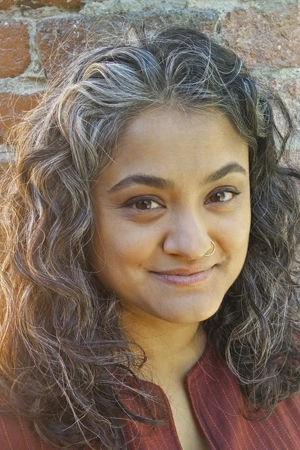sujatha baliga
Even as a child, I understood the racism at the nexus of our immigration, criminal and child welfare systems—the very network purportedly designed to protect me. This understanding informed my silence about the sexual harm I was suffering in my home. Had anyone asked me what I needed, I would never had said, ‘Incarcerate my father, deport my mother and sister, and place me in foster care.’ I would have said, ‘Help my family heal.’ But no one asked me.
The Challenges: Secrecy, shame and silence around child sexual abuse are nearly ubiquitous, even in our own movement. The pathologizing and marginalization of survivors, the failure to centralize our voices and use our wisdom to craft and lead agendas—these are critical problems we must tackle in building a movement to end child sexual abuse. Moreover, many survivors remain hidden because they are disinclined to engage in our current approaches to addressing child sexual abuse. Silenced voices cannot describe the problem, offer solutions, or build a movement.
The Solutions: A survivor-led movement. When we sincerely ask people what they need, they will tell us. And when we sincerely engage them in crafting solutions and in building a movement that elicits and follows their wisdom, they will engage in the work. Without survivors at the helm, we will not end child sexual abuse.
The Strategy: This project works to develop a survivor-led movement and re-imagine justice processes that are effective and safe for all participants, responsive to what survivors need, and responsive to what those who’ve harmed need to end their offending. We cannot have a survivor-led movement without more visible survivors; but only the survivors can know if, when, and how they want to share their stories. One of the primary things that makes it safe for survivors to “come out” publicly is for other survivors to come out. By providing peer support and resources, this project will make it safe for more survivors to speak up about their journeys and wisdom, if and when they choose to do so. It will take the form of workshops and retreats on public speaking, self-care, media training, and public policy for child sexual abuse survivors who are ready to share their stories in public forums and for strategic ends.
The project will also offer restorative justice workshops that explore how the binary aspects of our legal system have, for so many, proved deeply ineffective for everyone affected by crime: victims, those who have harmed them, and their families and communities. Interventions will always fail if they do not centralize the wisdom of victims’ self-identified needs. If we ask survivors what they need, what will they say? If we ask survivors what justice looks like, what will they describe? How do we operationalize those answers to their satisfaction? How do we change or circumvent a state apparatus that stands in the way of new structures and systems that serve victim-identified needs for healing and justice? Regarding people who cause sexual harm, what do they need to heal and never cause harm again? What causes, conditions and opportunities gave rise to their offending and what community-based mechanisms could protect against those factors? What does justice that protects against those factors look like in practice?
Ultimately, this project will explore what survivors need to safely come out, how they can be resourced to come out to the degree that it is safe and liberating for them to do so, and how the movement can support the transformation of survivors’ wisdom into effective campaigns, policies and community-based justice practices which can end child sexual abuse.
sujatha baliga‘s work is characterized by an equal dedication to victims and persons accused of crime. A former victim advocate and public defender, sujatha was awarded a Soros Justice Fellowship which she used to organize a successful restorative juvenile diversion program in Alameda County. sujatha is a frequent guest lecturer at universities and conferences, has been a guest on NPR’s Talk of the Nation and the Today Show, and her work has been profiled in the New York Times Magazine. She often speaks publicly and inside prisons about restorative justice, her personal experiences as a survivor of child sexual abuse, and her path to forgiveness.
Today, sujatha is the director of the Restorative Justice Project at Impact Justice, where she helps communities implement restorative justice alternatives to juvenile detention and zero-tolerance school discipline policies. She is also dedicated to advancing restorative justice to end child sexual abuse and intrafamilial and sexual violence. sujatha earned her A.B. from Harvard College, her J.D. from the University of Pennsylvania, and has held two federal clerkships. sujatha makes her home with her partner of 17 years, Jason, and their 9-year-old son, Sathya.
Even as a child, I understood the racism at the nexus of our immigration, criminal and child welfare systems—the very network purportedly designed to protect me. This understanding informed my silence about the sexual harm I was suffering in my home. Had anyone asked me what I needed, I would never had said, ‘Incarcerate my father, deport my mother and sister, and place me in foster care.’ I would have said, ‘Help my family heal.’ But no one asked me

